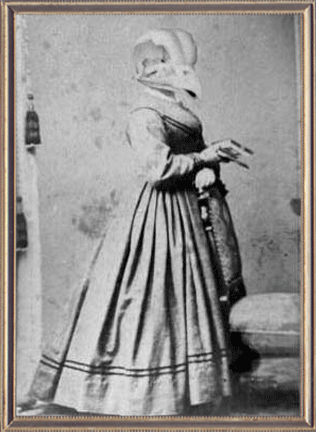
Eugenie
Poulart grew up as the daughter of a Spanish gentleman and a
Dutch lady. At the age of 17 she was married to an italian nobleman who
was 20 years her senior. Under suspicious circumstances her wealthy husband
died, leaving her a nice sum of money at 19 years of age.
She then moved to an apartment in Stockholm, which quickly became a rallying point in high society. The most important people in literature, art and politics of those days met, and the guests were entertained by intellectual conversation and music. Among her regular guests was the young poet Tegnér, whose enthusiasm for her was at first intense. In his diaries he writes her praise as “a rose from the south with an angel’s posture, and the most beautiful voice. She sings with her heart and looks like a wedding night”. His wrote “La Poeme Eugenie” in her honor, where in she is likened to a nightingale in a wild rose bush. Music for the poem was written by B. Crusell and was widely sung. Two other poets, C.W. Böttiger and Geijer from Uppsala, dedicate poems to her. The latter wrote “The Southern Lady in the North”. It is likely that all three poets courted her, but in vain.
In Paris she married her second husband, the dazzling cavalry captain Tom Gröndall, 18 years her junior. The lady of society now became an ambitious housewife. She gave birth to 2 children and becomes interested in vegetable gardening and raising poultry. In secret she writes her memoirs: “At the Christmas fire some years ago”, published anonymously. In it she makes bitter remarks about men, the growing discomfort of growing old, and about the Swedish climate.
When she died she was forgotten in Stockholm. Only her true admirer, M.J. Crusenstolpe, praises her for her goodness and charm in an obituary in the yearbook Svea.
She then moved to an apartment in Stockholm, which quickly became a rallying point in high society. The most important people in literature, art and politics of those days met, and the guests were entertained by intellectual conversation and music. Among her regular guests was the young poet Tegnér, whose enthusiasm for her was at first intense. In his diaries he writes her praise as “a rose from the south with an angel’s posture, and the most beautiful voice. She sings with her heart and looks like a wedding night”. His wrote “La Poeme Eugenie” in her honor, where in she is likened to a nightingale in a wild rose bush. Music for the poem was written by B. Crusell and was widely sung. Two other poets, C.W. Böttiger and Geijer from Uppsala, dedicate poems to her. The latter wrote “The Southern Lady in the North”. It is likely that all three poets courted her, but in vain.
In Paris she married her second husband, the dazzling cavalry captain Tom Gröndall, 18 years her junior. The lady of society now became an ambitious housewife. She gave birth to 2 children and becomes interested in vegetable gardening and raising poultry. In secret she writes her memoirs: “At the Christmas fire some years ago”, published anonymously. In it she makes bitter remarks about men, the growing discomfort of growing old, and about the Swedish climate.
When she died she was forgotten in Stockholm. Only her true admirer, M.J. Crusenstolpe, praises her for her goodness and charm in an obituary in the yearbook Svea.
 |
 |
||||